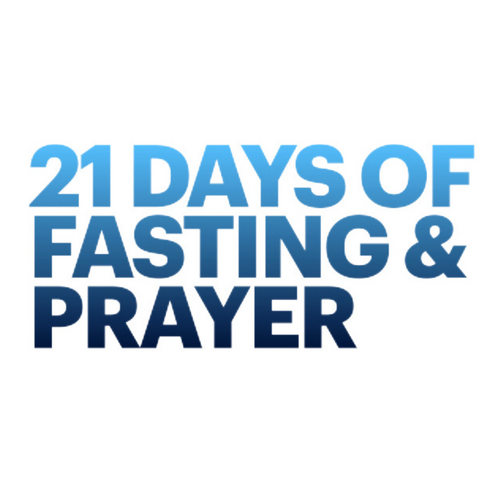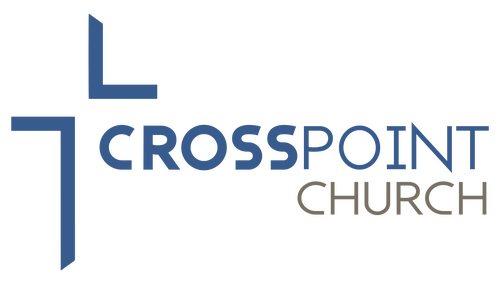

ABOUT FASTING
Scripture does not command Christians to fast. God does not require or demand it of Christians. At the same time, the Bible presents fasting as something that is good, profitable, and beneficial. The book of Acts records believers fasting before they made important decisions (Acts 13:2; 14:23). Fasting and prayer are often linked together (Luke 2:37; 5:33).
Often, the focus of fasting is on the lack of food. However, the purpose of fasting should be to take your eyes off the things of this world to focus completely on God. Fasting is a way to demonstrate to God, and to ourselves, that we are serious about our relationship with Him. Fasting helps us gain a new perspective and a renewed reliance upon God. Thus, the goal of fasting is to disconnect from the world and to draw near to God. It hits the reset button of our soul and renews us from the inside out.
When deciding on a fast, we encourage you to seek God in prayer and follow what the Holy Spirit leads you to do.
Often, the focus of fasting is on the lack of food. However, the purpose of fasting should be to take your eyes off the things of this world to focus completely on God. Fasting is a way to demonstrate to God, and to ourselves, that we are serious about our relationship with Him. Fasting helps us gain a new perspective and a renewed reliance upon God. Thus, the goal of fasting is to disconnect from the world and to draw near to God. It hits the reset button of our soul and renews us from the inside out.
When deciding on a fast, we encourage you to seek God in prayer and follow what the Holy Spirit leads you to do.
SCRIPTURE ABOUT FASTING
- “And when you fast, do not look gloomy like the hypocrites, for they disfigure their faces that their fasting may be seen by others. Truly, I say to you, they have received their reward. 17 But when you fast, anoint your head and wash your face, 18 that your fasting may not be seen by others but by your Father who is in secret. And your Father who sees in secret will reward you. Matthew 6:16-18
- Then the disciples of John came to him, saying, “Why do we and the Pharisees fast, but your disciples do not fast?” 15 And Jesus said to them, “Can the wedding guests mourn as long as the bridegroom is with them? The days will come when the bridegroom is taken away from them, and then they will fast. Matthew 9:14-15
- He also told this parable to some who trusted in themselves that they were righteous, and treated others with contempt: 10 “Two men went up into the temple to pray, one a Pharisee and the other a tax collector. 11 The Pharisee, standing by himself, prayed thus: ‘God, I thank you that I am not like other men, extortioners, unjust, adulterers, or even like this tax collector. 12 I fast twice a week; I give tithes of all that I get.’ 13 But the tax collector, standing far off, would not even lift up his eyes to heaven, but beat his breast, saying, ‘God, be merciful to me, a sinner!’ 14 I tell you, this man went down to his house justified, rather than the other. For everyone who exalts himself will be humbled, but the one who humbles himself will be exalted.” Luke 18:9-14
- Now there were in the church at Antioch prophets and teachers, Barnabas, Simeon who was called Niger, Lucius of Cyrene, Manaen a lifelong friend of Herod the tetrarch, and Saul. 2 While they were worshiping the Lord and fasting, the Holy Spirit said, “Set apart for me Barnabas and Saul for the work to which I have called them.” 3 Then after fasting and praying they laid their hands on them and sent them off. Acts 13:1-3
- Now on the twenty-fourth day of this month the people of Israel were assembled with fasting and in sackcloth, and with earth on their heads. 2 And the Israelites separated themselves from all foreigners and stood and confessed their sins and the iniquities of their fathers. 3 And they stood up in their place and read from the Book of the Law of the Lord their God for a quarter of the day; for another quarter of it they made confession and worshiped the Lord their God. Nehemiah 9:1-3
TYPES OF FASTS
1. Complete Fast - In this type of fast, you drink only liquids, typically water with light juices as an option.
2. Selective Fast - This type of fast involves removing certain elements from your diet. One example of a selective fast is the Daniel Fast, during which you remove meat, sweets, and bread from your diet and consume water and juice for fluids and fruits and vegetables for food.
3. Partial Fast - This fast is sometimes called the “Jewish Fast” and involves abstaining from eating any type of food in the morning and afternoon. This can either correlate to specific times of the day, such as 6:00 am to 3:00 pm, or from sunup to sundown.
4. Soul Fast - While true fasting is about limiting or restricting your food intake, this “fast” is a good option if you don’t have much experience fasting food, have health issues that prevent you from fasting food, or if you wish to refocus certain areas of your life that are out of balance. For example, you might choose to stop using social media or watching television for the duration of the fast and then carefully bring that element back into your life in healthy doses at the conclusion of the fast.
2. Selective Fast - This type of fast involves removing certain elements from your diet. One example of a selective fast is the Daniel Fast, during which you remove meat, sweets, and bread from your diet and consume water and juice for fluids and fruits and vegetables for food.
3. Partial Fast - This fast is sometimes called the “Jewish Fast” and involves abstaining from eating any type of food in the morning and afternoon. This can either correlate to specific times of the day, such as 6:00 am to 3:00 pm, or from sunup to sundown.
4. Soul Fast - While true fasting is about limiting or restricting your food intake, this “fast” is a good option if you don’t have much experience fasting food, have health issues that prevent you from fasting food, or if you wish to refocus certain areas of your life that are out of balance. For example, you might choose to stop using social media or watching television for the duration of the fast and then carefully bring that element back into your life in healthy doses at the conclusion of the fast.
